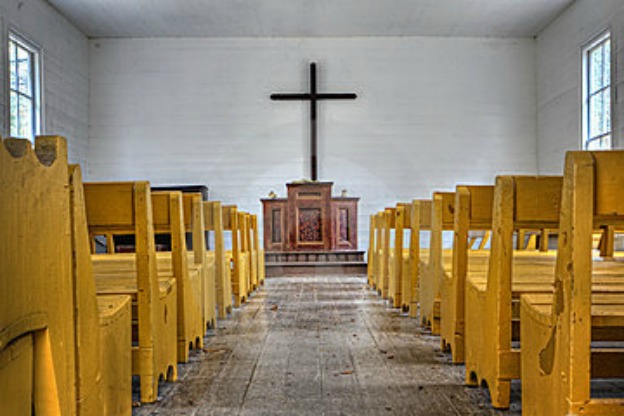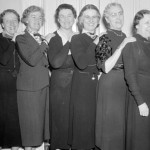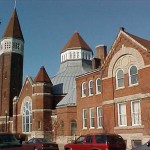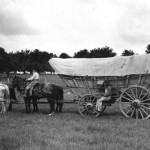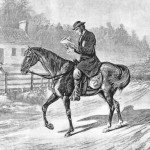Gilbert De La Matyr was ousted from the ministry when his sermons started advocating policies of the Greenback Party.
Questions regarding the role of religion in politics continue to provoke heated discussion in American society.
Such conflicts, however, are hardly new, as the story of one Indianapolis Methodist pastor illustrates. Gilbert De La Matyr, born in 1825 in New York, arrived in Indiana in 1874, when he became the minister at Roberts Park Methodist Church in Indianapolis. For three years, De La Matyr helped the church finish a major building project and attracted many new members.
When he was reassigned in 1877, he left with warm wishes from his congregation and assumed the pastorate of the city’s Grace Methodist Church. Once there, De La Matyr became a more controversial figure. Theologically traditional, he began to preach on social issues of the day. Beyond general and fairly non-controversial denunciations of government corruption and exhortations to good citizenship, the pastor began to branch out into stickier issues, particularly that of currency reform.
In the late nineteenth century, many politicians began to propose a variety of reforms to the national banking system and the national currency. De La Matyr became attracted by the ideas of the rising Greenback Party, which condemned the “tyranny” of capital, held in the hands of a rich minority and controlled by a national banking system which held down the working middle class and the poor. The Greenbackers proposed instead a paper currency which would be strictly limited by the needs of commerce at any given time.
When De La Matyr began to preach currency reform and condemn capital, local papers and many of his fellow ministers (and parishioners) accused him of communism. His Methodist conference gave him the choice of pulpit or politics, and he chose the latter.
De La Matyr ran for and was elected to the U.S. Congress in 1878, and spent two years in Washington, D.C., working for financial and currency reform. None of the bills he sponsored became legislation, and as the Greenback platform became less popular, the former minister lost much of the support that had put him in office. Voted out in 1880, De La Matyr eventually returned to the ministry, and served Methodist parishes first in Colorado and then in Ohio.
On his death in 1892, he was memorialized by an Akron, Ohio, newspaper as “Christian, sage, preacher and reformer.”
Source: Richard Doolen, “Pastor in Politics: The Congressional Career of the Reverend Gilbert De La Matyr,” IMH June 1972
A Moment of Indiana History is a production of WFIU Public Radio in partnership with the Indiana Public Broadcasting Stations. Research support comes from Indiana Magazine of History published by the Indiana University Department of History.










